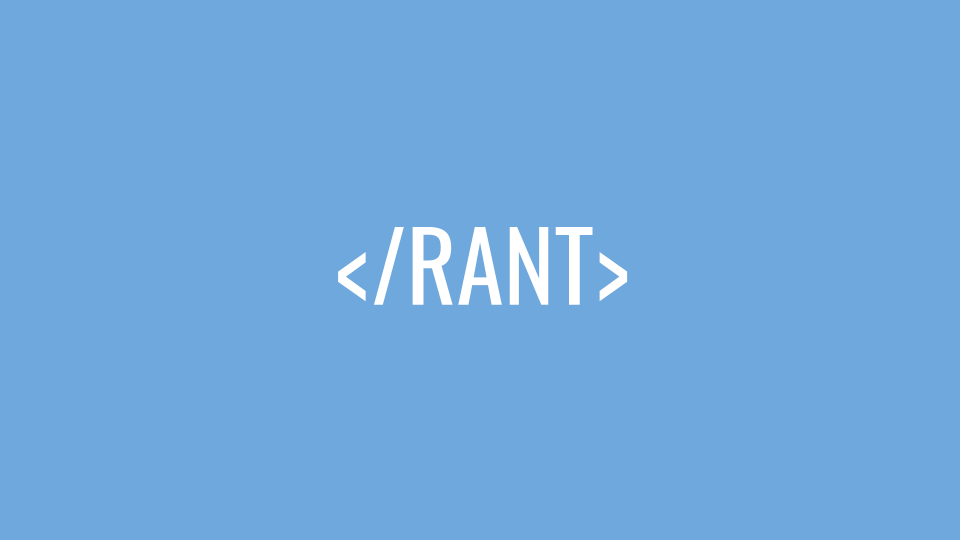This is a paraphrasing of a talk I gave at FFS Conf Down Under in February 2019.
This is about language; and when you talk about language, it’s compulsory in a talk like that to flash up a dictionary definition of a word. Here’s mine:
RESOURCE noun rē-ˌsȯrs
An economic or productive factor required to accomplish an activity, or as means to undertake an enterprise and achieve desired outcome. Three most basic resources are land, labor, and capital; other resources include energy, entrepreneurship, information, expertise, management, and time.

If you’ve ever worked in a big organisation (I have) then you’ve probably heard the “r” word used when really the speaker was talking about a person or people. Something like “we have a new resource starting next week” or “that resource is not available” or maybe “we’ve double booked that resource”.
It may seem like a small thing, using one word instead of another and it’s very easy to do. I know, because I used to do it myself. But as soon as we start down that path, we end up dehumanising the people who we work with. We think of deadlines, of deliverables, of stakeholders and of resources. But that blinds us to the reality that everyone who works with us is another human being, another person who is an individual and who has their own unique skills and outlook on life.
When you talk to a person face to face you probably call them by their name; maybe you talk to them about what they can do and what they want. I don’t imagine that you address them as “hello, senior developer” or “hi there, testing resource”. Yet when you talk about them behind closed doors, have you ever found yourself doing that? Would you rather be seen as an “economic or productive factor” or as a person?

Once we start talking about people as resources, we reduce them to being pegs that fit in holes. You’ve seen it before - “to complete this project, we need one person who can test, one person who can code Android, one who can write SQL queries”. People become interchangeable - one Android developer is the same as another Android developer. One stops working? Take another one off the shelf and put them to work. I don’t know about you, but I find that pretty soul crushing. Where’s my say in what we do? How do I become more than a cog in a machine where there’s a never-ending stream of new code to bash out. Where’s my autonomy?
The corollary of this is that people become reduced just to a certain set of skills. I’ve seen so many instances where someone comes in as a fully formed person with a multitude of things they can do and ends up being boxed in as a single skill. I’ve seen people who have a broad set of skills from design to development to copywriting become boxed in as just someone who churns out JavaScript and never gets to stretch their other muscles. It also cuts out what makes us all human - our personalities, our quirks, our humanity. When you’re working in a team - and I mean a real team, not just a group of people working independently who stand comatose for 15 minutes each morning while the other people who sit near them drone on about what they did yesterday - you’re so much more than the work you do. Think about the people you’re friends with - maybe some of them are from your school days - did you engage with them through a common love of solving quadratic equations or was it because you had other interests outside of classwork. When we see ourselves as complete people and bring that complete self to work, we open up so many more avenues to connect with people.

The other thing I hate about “resources” is that you are an “economic factor” - that is, your only value is in the code you churn out, the user stories you write, the test cases you execute. And the only rational thing is to use you as efficiently as possible. Get the most out of you for the amount you get paid. The thing about optimising for utilisation of “resources” is that everyone becomes 100% busy and that’s a recipe for disaster. With no slack time (not the chat program), there’s never room for improvement. Everyone’s too busy churning out the next thing. There’s never any time to finish off the last thing you were doing before you’re moved onto the next. And that leads, inevitably, to burnout.
Another related issue is that people get assigned on a percentage basis - 10% on this thing, 50% on that thing and the rest of the time on the other. And that’s not effective. The overhead of context switching is massive - every time you have to drop one task, move onto another because it’s more urgent, then move back, then move onto the thing you were doing last week there’s a massive penalty in time and in sanity. In a study performed at the University of California by Dr Gloria Mark, it was revealed that we spend an average of just 1 minute and 15 seconds on a task before being interrupted, it takes an average of 25 minutes to resume a task after being interrupted and that heavy multitasking can temporarily lower your IQ by up to 15 points.

If we see people as resources who are there to provide specific skills to us, there’s no real incentive to help those people develop themselves and their skills beyond what we see as “necessary”. If someone’s filling the “front-end developer” box in my team, why would I want them to go and learn about marketing? What if they like it and go and fill the “marketing” box on someone else’s team? That leaves me in the lurch. Or maybe our project is all jQuery, why would I let them go and learn React? It’s not like we’re using it, they’re just going to go and get a job somewhere else where they do React.
Not to go all LinkedIn on you, but this from Richard Branson sums it up nicely:
Train people well enough so they can leave, treat them well enough so they don’t want to.
So my plea to you: when you’re talking with your colleagues, when you’re thinking about the work you’re doing, take a moment to stop and ask yourself: “am I talking about a resource or a person?” And if you hear someone else talking about someone as a resource, call them out on it. It doesn’t have to be antagonistic, just say “did you mean person?” Most people will agree that, yes, that’s actually what they meant. And maybe, just maybe, they’ll shift their thinking a little and the world will become a better place. After all, it seems like it’s only a little thing, one little word, but I believe it’s very important.

A lot of the inspiration for this talk/post came from Esther Derby’s excellent article: Resources don’t write software. People Do.
